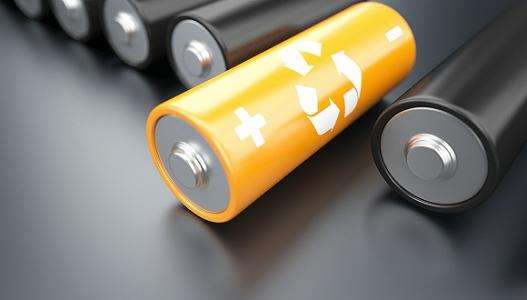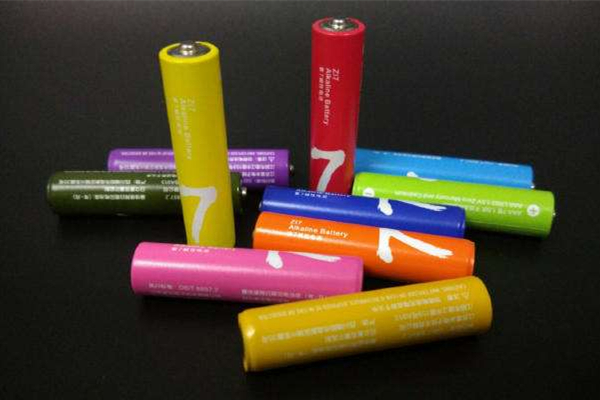How To Store Lithium Batteries
Jul 16, 2019 Pageview:1914
Lithium batteries are commonly in electronics, including computers, cell phones, and other light devices. The batteries can be stored even if not installed in an appliance. If lithium-ion batteries are stored in hot or cold conditions or without charge, they may not be able to be revived when needed. Here are some of the steps followed to keep a lithium battery.
-Using a battery charger, charge your batteries to at least 40 percent to avoid future charging problems. And if it doesn’t have any charge, you will need to charge it for about half an hour to arrive at 40 percent.
-Find a warm and cold place to store your lithium-ion batteries. And always avoid storing them in the bathroom, basement, or any wet areas within the house. Ensure that the ideal temperatures range between 0 and 60 degrees.
-Refrigerate your batteries if it happens you don’t have any other place to store them. Never use a freezer but instead use the fridge part only to avoid cold.
-Always avoid placing your batteries in a drawer which is directly from the sunlight during day times. Lithium-ion cells might explode if exposed to extreme light. Also, ensure that you use them frequently or even charge them as lithium batteries tend to lose its charge even when stored.
-Finally, if you plan to travel on an airplane with a lithium-ion battery, ensure they are in your packed luggage.
How to store lithium batteries for the winter
Storing a lithium-ion battery is a very critical and vital aspect for long shelf life and their maximum performance during cold weather. Some tips to help you ensure that you take care of lithium batteries.
-Do not store lithium batteries in low temperatures below 17C or above 27C. At this temperature range, at a lower temperature, you might damage lithium batteries permanently. Always keep them in a warm place within the house at room temperature.
-Never charge the battery if it is below 0C or above 45C as this will cause damage to your cells.
-Usually, expect decreased capacity and range at lower operating temperatures, the maximum size will be at 80% of average temperatures near 0C.
From the above, this shows that your battery like to be charged warm and also kept warm always to perform well when warm which is much challenging during winter but usually a heated garage is perfect for storage.
Besides, if you can, discharge and recharge your lithium batteries once per month. It helps to keep the battery in shape.
How to store lithium batteries long time
Lithium batteries are becoming more used these days. They are more prevalent in many of our electronic applications like laptops, cell phones, and power tools. If lithium battery you are using is fully charged but doesn't last for long periods, then something might be wrong with the battery. To avoid these, here are some steps to follow, which can help you to extend the shelf life of your lithium-ion batteries.
Always keep your lithium battery at a 40% charge state
Always it is better to keep your battery fully charged before use, but it's harmful to discharge them fully. It is mostly recommended by manufacturers to store lithium batteries at around 60 degrees and 40% charge level. The 40% charge allows a stable condition even during a level of self-charge.
Never leave your lithium battery at a higher temperature
Lithium-ion batteries do not like extreme heat. If left at a higher temperature, it's life span, run time, and charge capacity reduces gradually. You can mostly observe on laptops. Laptops produce heat. you can avoid by removing a lithium battery while using a corded power source.
Always check and know the manufacturer date on a lithium battery
Always check the manufacturer's date before buying a lithium battery, and only purchase when ready to use it. The lifespan of a lithium battery starts to decline immediately; it leaves the factory. Mostly 20% of lithium battery charge is lost every year from the original date of manufacture no matter how good care it will be taken.
Avoid overcharging your lithium battery
Always remove the lithium-ion battery from a digital camera when not in use. If you leave a lithium-ion battery inside a digital camera battery compartment at all the time, its usability decline much faster with time and reduces its workability.
Avoid full discharges of your lithium batteries
Partial releases with frequent re-charges are much beneficial than one extended discharge. High discharge rates enhance damage and strain on a lithium battery. Charging at a slower charge rate and more frequently, you will help to improve lithium battery life to last much longer.
If you follow these vital tips and advice, you might enhance the shelf life of your lithium-ion battery that can last as long as two years.
How to store lithium batteries when not in use
Lithium battery, when not in use, always separate them, and here are some of the precautions you need to put in mind when you store a lithium-ion battery as this helps to maintain its charge safely.
-Make use that you place a lithium-ion battery in a climate-controlled storage structure such as a shed or garage or inside the house. Ensure that you store your cells not at temperatures above 85 degrees Fahrenheit to avoid harm on the battery's performance.
-Prepare a plastic or wood shelf to store your batteries when not in use. Avoid putting the battery on a metal shelf to prevent overheating which might be caused by battery’s terminals touching the metal.
-Allow the battery to lose one-half of its charge before storing it. If you store lithium battery when fully charged, it becomes stressed, and it might lose functionality when subjected to full charge for long periods.
Re-charge the battery partially every two months. It keeps the ions ready to work under a full charge when in use again.
- Prev Article: How long does it take to charge 18650 battery?
- Next Article: Discussion: Lithium AA batteries vs alkaline
Leave Message
Hottest Categories
-
Hottest Industry News
-
Latest Industry News











